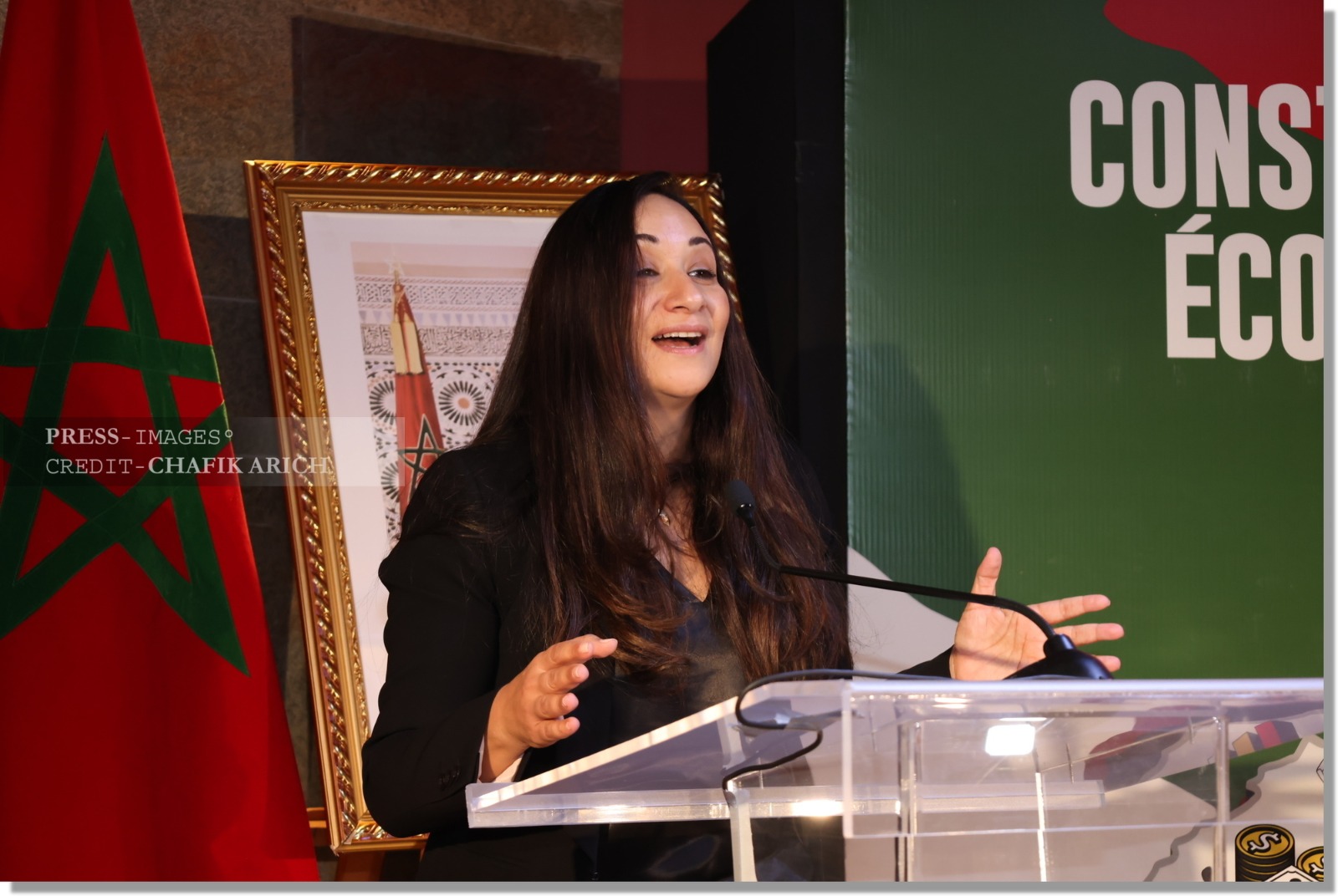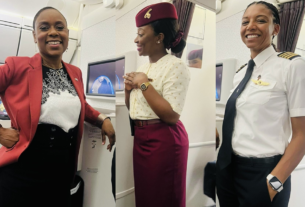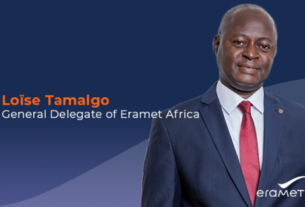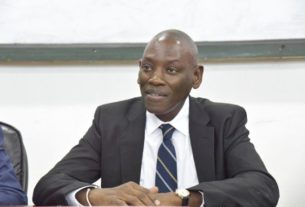Convinced that African SMEs must be at the heart of all sector strategies, in 2016 Khadija Idrissi Janati launched Ifrane Forum, the African trade and investment summit, an annual event bringing together African economic and political operators, whose 7th edition took place from December 6 to 8 in the Moroccan town of Ifrane. Ifrane Forum’s main aim is to support African SMEs and help the continent’s economic champions to emerge.
Interview conducted in Ifrane by our special envoy, Adrienne Londole
African Shapers: What motivated you to launch Ifrane Forum?
Khadija Idrissi Janati: Ifrane Forum, the African Trade and Investment Summit, was launched in 2016 in response to an obvious observation. There was no meeting place by Africans for Africans, at a time when the continent was beginning to discuss integration. At a time when the African Continental Free Trade Area (AfCFTA) was gaining momentum, we felt it was essential to create a platform where Africans could exchange ideas, meet each other, get to know each other better, develop mutual trust and foster collaboration. The first edition of the forum took place in 2016, and since then we have adapted the concept in terms of format and content. We have succeeded in positioning the forum as a platform for the African private sector, with a particular focus on African SMEs. We are convinced that the continent’s economic and social development inevitably depends on the private sector. In the years to come, Africa will become the world’s largest market. That’s why African businesses need to prepare themselves, anticipate and integrate this reality into their strategic and development thinking.
African Shapers: What makes the forum special?
Khadija Idrissi Janati: Ifrane Forum is distinguished by two features that are unanimously recognised by its participants. Firstly, the forum is positioned as close as possible to the realities of African businesses. We simplify discussions and topics to meet the strategic and operational needs of companies. Our approach avoids philosophical debates, high-level political or macro-economic issues. We address issues of concern to every entrepreneur, offering concrete answers. Our approach is an operational one, aimed at quickly finding solutions and taking tangible action.
The second distinctive feature of Ifrane Forum is its ability, thanks to this spirit, to attract participants who share a passion for the African continent and believe in its potential. When companies seek to expand their activities in Africa, this is either the result of commercial opportunism or of a deep conviction in the continent’s potential in terms of human or natural resources, as well as its potential for development. Ifrane Forum thus attracts operators who believe in Africa as a territory conducive to their development, while creating a significant impact in their environment and communities.
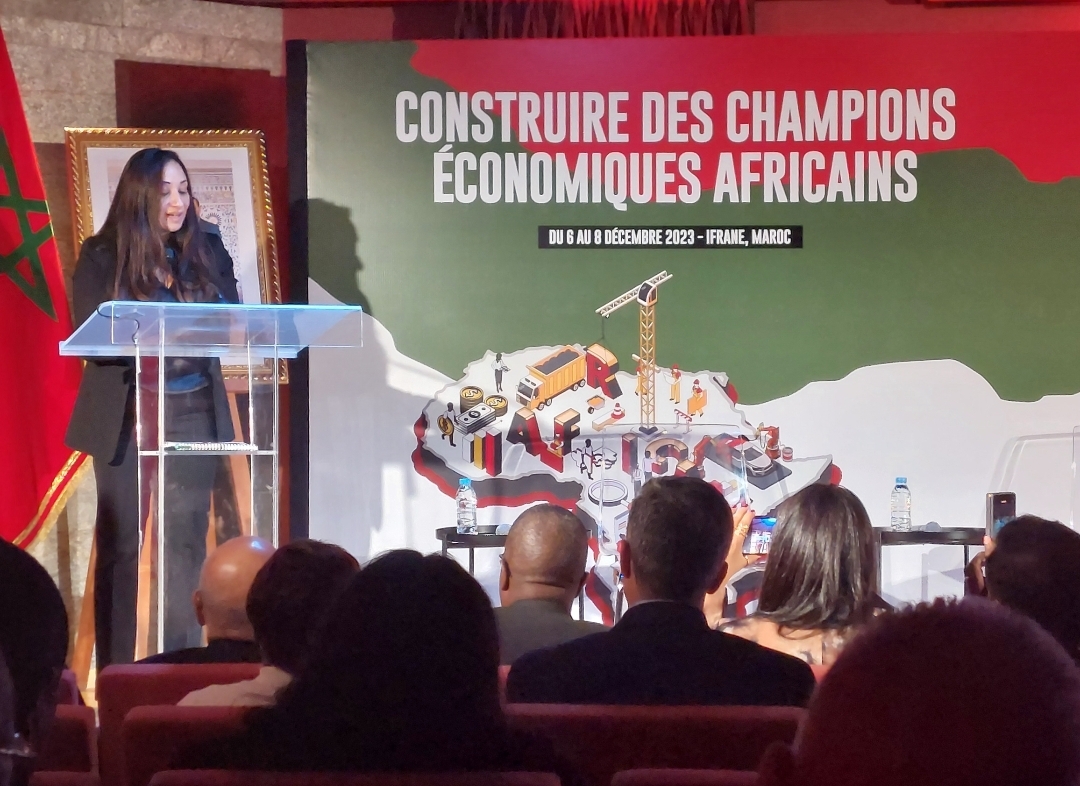
African Shapers: The theme of this 7th edition was “Building African Economic Champions”? Why did you choose this theme and what innovations did you introduce compared with previous editions?
Khadija Idrissi Janati: After six editions, we have identified the main characteristics of the African private sector, 90% of which is made up of small and medium-sized enterprises (SMEs) that generate over 300 million jobs, creating considerable wealth. However, despite this reality, the continent has only 500 companies considered to be champions in Africa. This observation led us to wonder why Africa has not succeeded in propelling economic champions capable of creating wealth and jobs, conducting economic diplomacy and establishing Africa as a major world market.
This year’s theme was chosen in response to this crucial issue. Today, African SMEs must occupy a central place in all sectoral strategies. This commitment was clearly expressed in the forum’s declaration, which placed particular emphasis on an in-depth understanding of the African SME ecosystem and the opportunities available to them.
We explored a range of topics, such as entrepreneurial dynamics on the continent, opportunities related to the African Continental Free Trade Area (AfCFTA), which are often misunderstood by these companies, and we also produced a guide on how to invest in Africa. The creative and cultural industries sector was also examined in depth.
This edition further consolidated Ifrane Forum’s positioning as a forum dedicated to African SMEs, with the aim of supporting these companies and helping continental economic champions to emerge.
African Shapers: The debates sought to provide answers to a number of questions, in particular what are the challenges and issues facing the African private sector and how can the African private sector seize the natural and demographic opportunities that lie ahead? What can we learn from the presentations in relation to these two questions?
Khadija Idrissi Janati : The African ecosystem encompasses various players such as policymakers, African and pan-African institutions, private economic operators, legislators and bodies responsible for creating legal frameworks. However, these different players do not share the same understanding and have divergent perspectives. A glaring example of this divergence can be found in the Continental African Free Trade Area (CAFTA). Although the idea of an integrated continental market was mooted over 40 years ago, it has taken many years to take the decision and imagine its implementation. The year 2023 saw the acceleration of the FTAA. Despite these years, the African private sector remains ill-informed and divided on the subject. Large companies consult renowned consultancy firms to understand the contours of the FTAA and take advantage of its opportunities. On the other hand, SMEs, which account for 90% of Africa’s economic fabric and have limited resources, feel powerless to seize this opportunity.
The FTAA offers an exceptional framework for the development of the African private sector on the continent, but this framework remains little known or understood. This is why one of the forum’s plenary sessions was dedicated to the place and role of the private sector in the FTAA, with a concrete and explanatory approach. It is essential that African SMEs also understand the role they can play in boosting this market. The frameworks provide the foundations, and it is up to the operators to put them into practice, to transform them into real wealth-creating opportunities, and to make them benefit the entire African population.
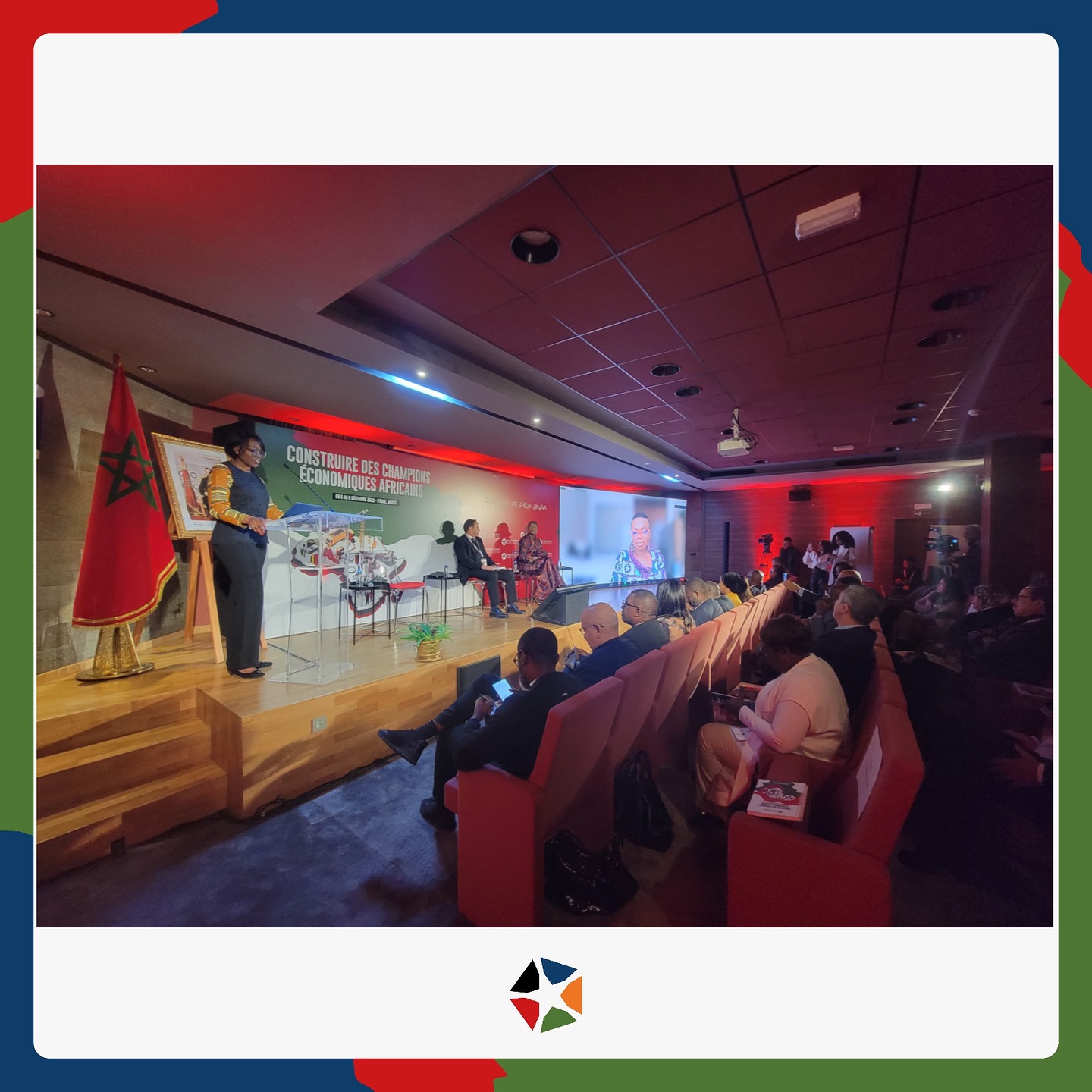
African Shapers: How can the Continental African Free Trade Area (CAFTA) be made truly operational, despite the many challenges it faces?
Khadija Idrissi Janati: The progress of the FTAA over the last decade has been remarkable. Each of the 54 African countries has a different history, economic and social structure, languages and religions, not to mention different population sizes. These disparities represent both a challenge and an opportunity. A challenge, because they complicate the harmonisation of frameworks. An opportunity, because they allow the continent to adopt the best practices from each country’s history or economy. Each of the 54 countries has managed to achieve at least one extraordinary thing. For example, in Morocco, during the Covid crisis and the ensuing economic crisis, the authorities implemented the law on national preference in all calls for tender. This means that in every call for tenders issued by the Moroccan government, Moroccan companies are favoured over foreign companies. Morocco is a forerunner in Africa on this point. Consider the impact if a similar law were adopted on a pan-African scale. In all pan-African calls for tender, preference would be given to African companies in sectors such as infrastructure, consultancy, hotels and so on. A single decision could transform Africa’s economic landscape.
African Shapers: What is the current volume of trade between Morocco and other African countries?
Khadija Idrissi Janati: But the potential is even greater. The big national champions have been able to set up in Africa. However, SMEs, which make up more than 80% of businesses in Morocco, are still a long way from having the capacity to export to other African countries. So we can still go further in terms of trade.
Two decades ago, a strong political will emerged to place Morocco at the heart of Africa and vice versa. This political will was quickly translated into concrete action. The King of Morocco undertook tours and visits to several countries on the continent, accompanied by a delegation of businessmen and women. In the space of 15 years, Morocco has become one of the leading investors on the African continent, a major transformation compared to the situation two decades ago. This development has been made possible by a strong political will, a clear roadmap and precise objectives. Between 2001 and 2021, trade between Morocco and other African countries more than quadrupled, rising from an annual average of 10 billion dirhams to almost 46 billion dirhams.
Despite these significant advances, the potential remains immense. While large national companies have been able to establish themselves in Africa, SMEs, which account for more than 80% of Moroccan businesses, are still struggling to develop their capacity to export to other African countries. So there are still opportunities to further increase trade.
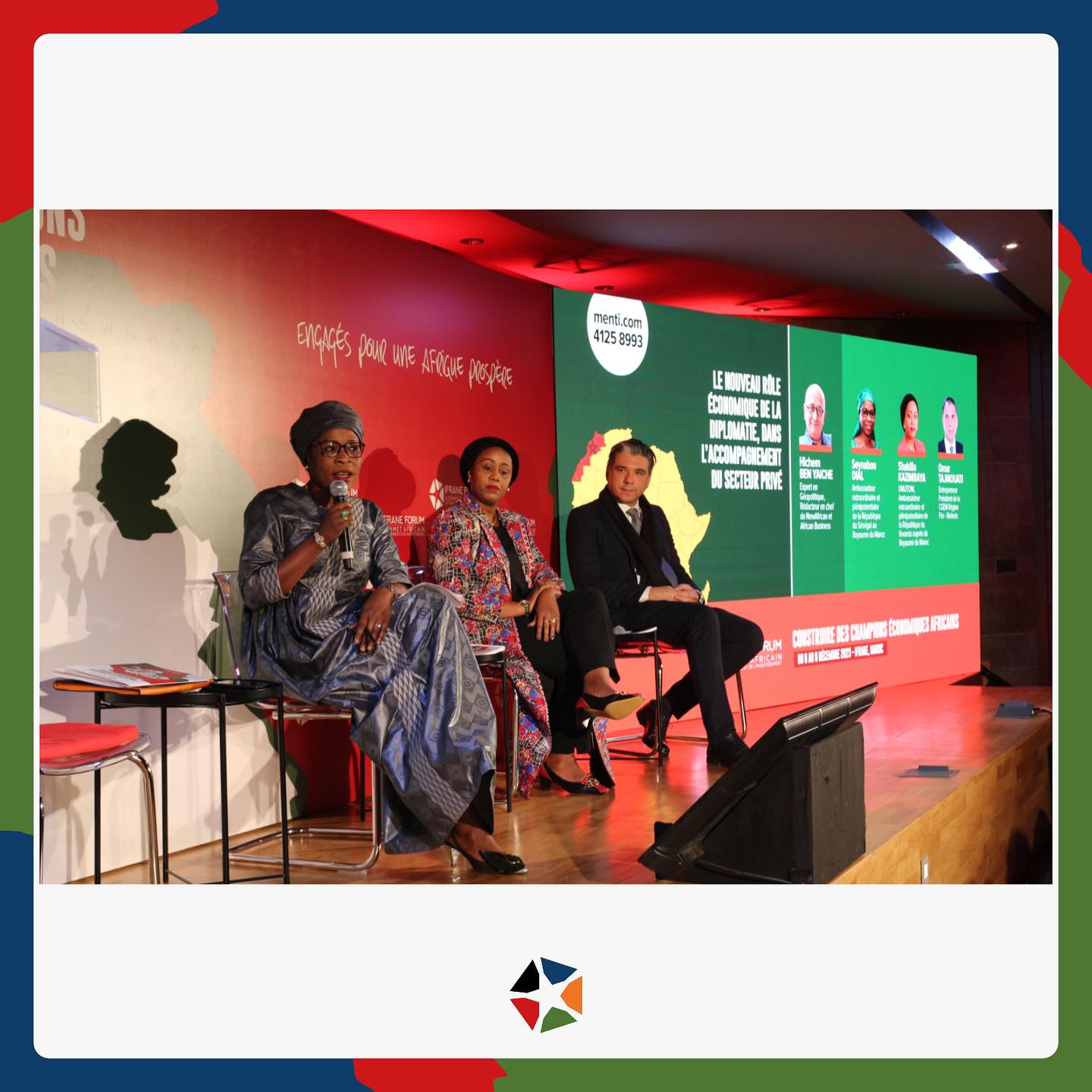
African Shapers: What is your assessment of the forum since it was launched?
Khadija Idrissi Janati: We’ve seen a remarkable rate of repeat attendance, with over 50% of participants from the previous edition returning regularly to the forum. This indicator shows that the Ifrane Forum is not simply a one-off event for discovering and making contacts, but rather a place where participants return to nurture and develop their networks. This testifies to the appeal of the forum format, the thinking behind it and the energy it generates. The forum is rooted in the reality of the African continent, thanks to the themes addressed and the 100% African speakers, enabling authentic communication, sharing the same language, the same experiences and the same vision for a common future. This feeling differs markedly from forums organised in Europe or the United States. The rate of repeat attendance at the forum reflects the satisfaction and bond built up by the participants.
Another significant indicator is the concrete collaborations generated at each event. Participants who meet at the forum develop projects together, come back to discuss them at the forum, and may even recruit others to join them, thus widening their circles of influence. This confirms our positioning as a space of trust, a crucial element in a context where some try to portray the business environment in Africa as risky and uncertain, encouraging mistrust.
The Forum also acts as a catalyst, drawing attention and stimulating thinking beyond established certainties. It promotes the idea that Africa, as a major economy, must be a proactive player, shaping the market and influencing major global trends. Just as Silicon Valley has become a global benchmark for technology, Africa should play a decisive role in many sectors, including agriculture and mining, where the continent holds exceptional potential.
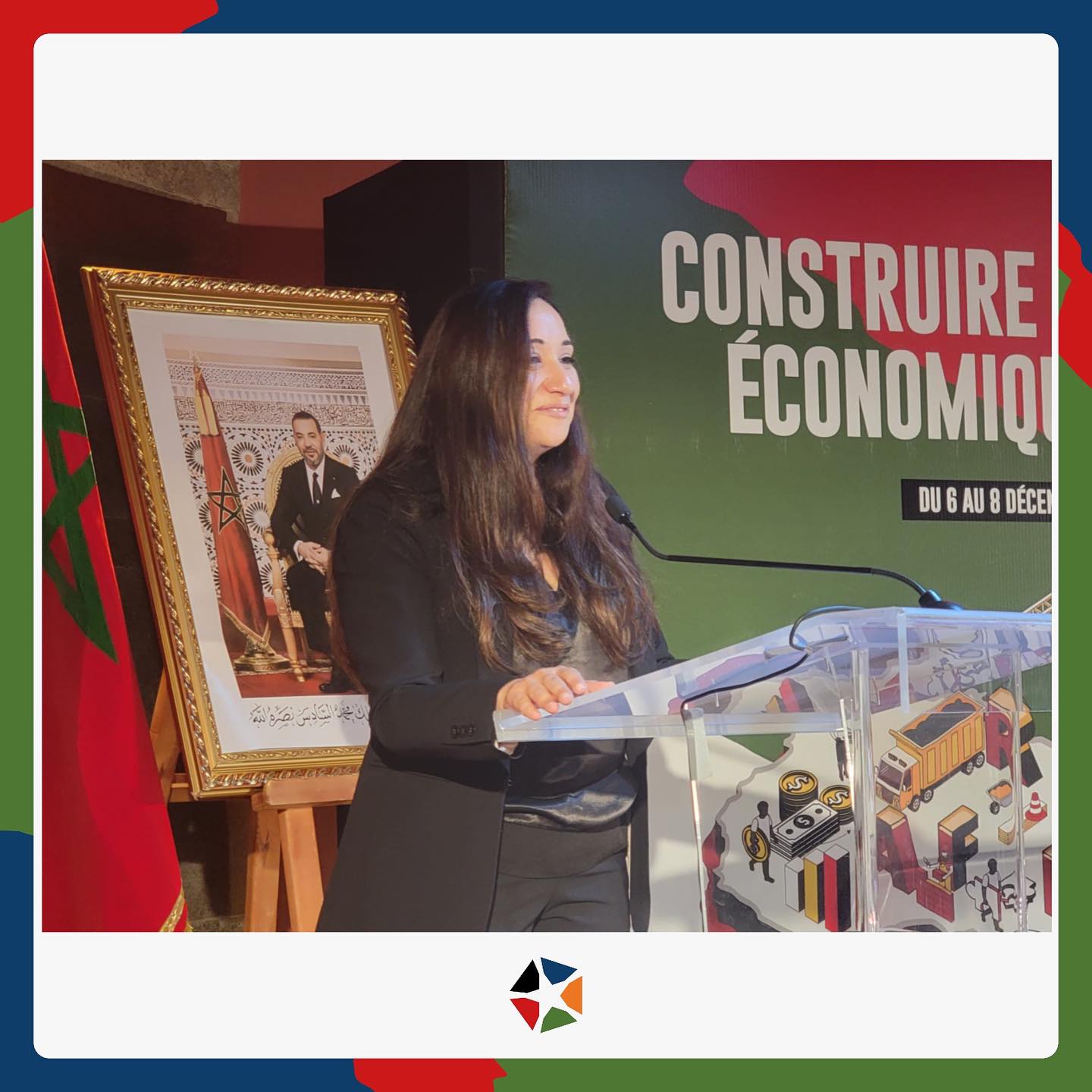
African Shapers: What are the forum’s objectives for the coming years?
Khadija Idrissi Janati: Our main objective is to strengthen our position as a forum dedicated to African SMEs, not only as a meeting place for SMEs, but also as a mouthpiece for decision-makers. One of this year’s resolutions includes the creation of a working group made up of academics, private sector operators, heads of public institutions promoting intra-African trade and investment, as well as experts in African law involved in various FTAA bodies. This working group will have three main tasks: to produce data, analyses, benchmarks and case studies on the African private sector in order to provide it with crucial information. Currently, the lack of data is a challenge, and producing this information will enable the African private sector to better plan its projections in terms of intra-African trade and investment.
The second mission will be to make the initiatives of the various continental bodies in favour of African SMEs more accessible. For example, in the case of the FTAA, many of the benefits are not taken on board by SMEs, which do not therefore systematically incorporate them into their development projects.
The third mission will be to highlight the successes of African SMEs. It is essential to give visibility to those who have succeeded on the continent, thereby helping to change the African narrative and the perspective from which the continent is perceived, both by Africans and others.
Ifrane Forum will use the outputs of this working group to support African SMEs in their investment decisions and to persuade them that the ‘top of mind’ for an African investor should be Africa, rather than Europe, the USA or Russia. He will demonstrate that Africans can succeed in Africa by moving forward together, by staying on the continent, investing in it and developing it from within.
Who is Khadija Idrissi Janati?
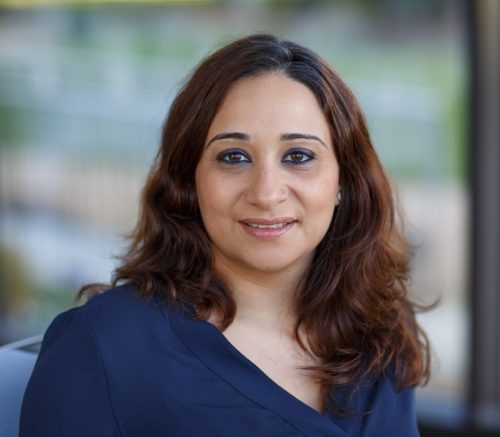
A Moroccan entrepreneur and expert in public affairs and strategic communications, Khadija Idrissi Janati has been CEO of several companies since 2009, including Tea And Koffee, a public relations and influence strategy consultancy operating in Morocco and other African countries.
She is also President of I-AFRIKA, a network of African entrepreneurs with the common goal of making a positive impact on Africa. In 2016, she launched Ifrane Forum to reflect on the future of the continent and create opportunities for the development of intra-African trade and South-South economic cooperation.
Khadija Idrissi Janati is active in promoting women’s entrepreneurship and economic empowerment.
She is National President of the Moroccan Association for the Promotion of Women’s Enterprise (ESPOD), a leading Moroccan NGO that has been working since 1990 to promote women’s economic empowerment through vocational training and entrepreneurship. She was also a member of the Board of Directors of the Association of Women Entrepreneurs of Morocco.
In September 2014, Khadija Idrissi Janati was received by President Barack Obama in recognition of her outstanding contribution to the work of civil society in Morocco and the region. In 2016, she was named Young Global Leader by the World Economic Forum (Davos Forum). She co-chaired the Davos Summit for the MENA region in 2017.
